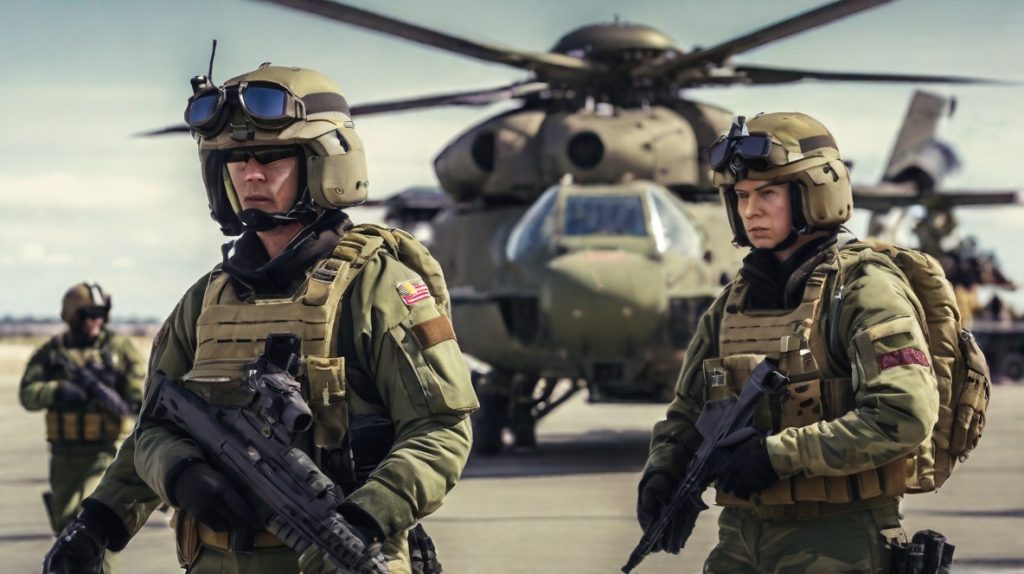On Monday, Seoul became the focal point of global discussions on artificial intelligence (AI) in military applications as South Korea hosted a major international summit. The two-day event, attended by representatives from over 90 countries including the United States and China, aimed to develop a comprehensive blueprint for the responsible use of AI in military contexts.
This summit, the second of its kind, follows last year’s gathering in Amsterdam, which resulted in a non-binding “call to action” endorsed by major nations. The Seoul meeting sought to build on this foundation, addressing the complex challenges posed by rapidly advancing AI technologies in warfare.
South Korean Defense Minister Kim Yong-hyun set the tone for the discussions, highlighting the dual nature of AI in military applications. He cited a recent example from the Russia-Ukraine conflict, where an AI-equipped Ukrainian drone played a crucial role, describing it as “David’s slingshot” in modern warfare. Minister Kim emphasized that while AI can significantly enhance military capabilities, it also carries risks of misuse, likening it to a “double-edged sword.”

Foreign Minister Cho Tae-yul outlined the summit’s primary focus areas, including ensuring AI compliance with international law and preventing autonomous weapons from making critical decisions without human oversight. The overarching goal was to establish a set of basic requirements for military AI applications, incorporating principles from NATO and other organizations.
The summit’s organizers aimed to create a framework that balances the potential benefits of AI in military operations with necessary safeguards. This approach reflects growing global concerns about the ethical implications of AI-driven warfare and the need for international cooperation in governing its development and deployment.
Participating countries engaged in multi-stakeholder discussions covering a wide range of topics. These included the protection of civilians in AI-enabled conflicts and the role of AI in nuclear weapons control systems. The diverse attendee list, comprising around 2,000 participants from government bodies, global organizations, academia, and the private sector, underscored the complex, interdisciplinary nature of the challenges at hand.
While the summit’s outcomes are expected to be non-binding, they represent a significant step towards setting boundaries on military AI applications. The event aimed to provide ongoing dialogue in a field characterized by rapid technological advancements driven largely by the private sector but governed by public policy.
The Seoul summit is part of a broader international effort to address the implications of AI in warfare. Parallel to this event, the United Nations is engaged in discussions about potential restrictions on lethal autonomous weapons systems under the 1983 Convention on Certain Conventional Weapons. Additionally, the United States has introduced a declaration on the responsible use of military AI, which has garnered endorsement from 55 countries as of August.
South Korea’s initiative in hosting this summit highlights its growing role in shaping global technology policy. By bringing together diverse stakeholders, the country aims to foster a collaborative approach to developing ethical guidelines for military AI use.
The summit’s discussions touched on several critical aspects of AI in military contexts:
- Legal compliance: Ensuring AI systems adhere to international laws and conventions governing warfare.
- Human oversight: Maintaining appropriate human control over AI-enabled weapons systems, particularly in life-and-death decisions.
- Ethical considerations: Addressing moral concerns surrounding the use of autonomous systems in combat.
- Technological safeguards: Developing mechanisms to prevent misuse or unintended consequences of military AI.
- International cooperation: Fostering global collaboration in setting standards and sharing best practices.
As the summit concluded, participants worked towards agreeing on a blueprint for action. This document aims to establish minimum guardrails for military AI use and suggest principles for responsible deployment. While it may lack legal enforcement mechanisms, the blueprint represents a significant step towards international consensus on this critical issue.
The Seoul summit underscores the global recognition of AI’s transformative potential in military affairs and the urgent need for ethical frameworks to guide its development. As nations continue to invest in AI-driven defense technologies, events like this play a crucial role in shaping the future of warfare and international security.

The outcomes of this summit are likely to influence policy discussions, research priorities, and international collaborations in the field of military AI for years to come. As the technology continues to evolve rapidly, ongoing dialogue and cooperation among nations will be essential to ensure that AI enhances global security while respecting ethical boundaries and international law.
Copyright©dhaka.ai
tags: Artificial Intelligence, Ai, Dhaka Ai, Ai In Bangladesh, Ai In Dhaka, Future of AI, Artificial Intelligence in Bangladesh, South Korea



